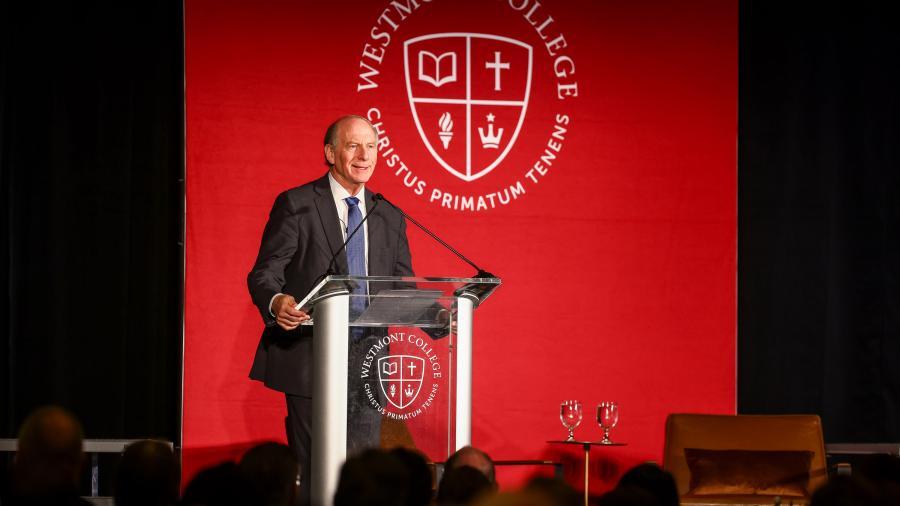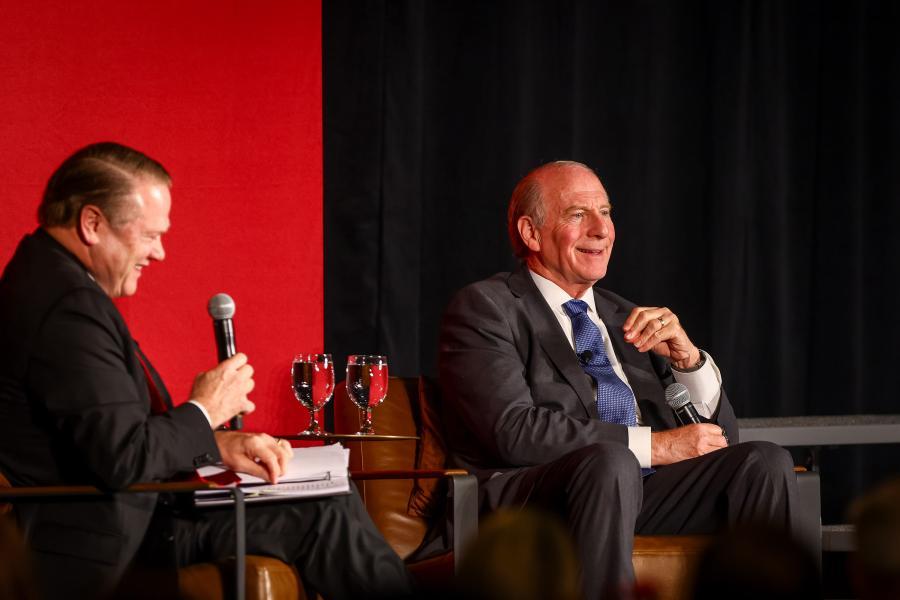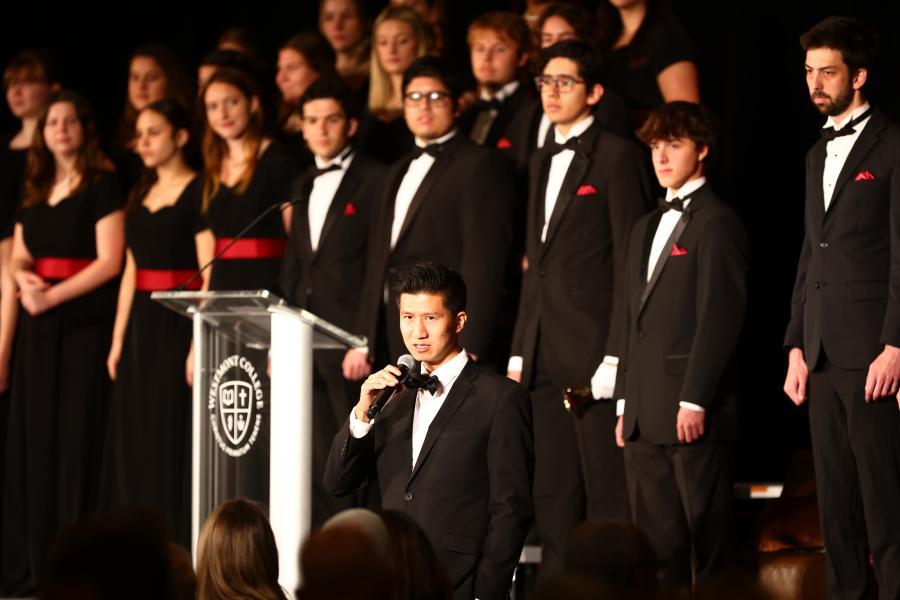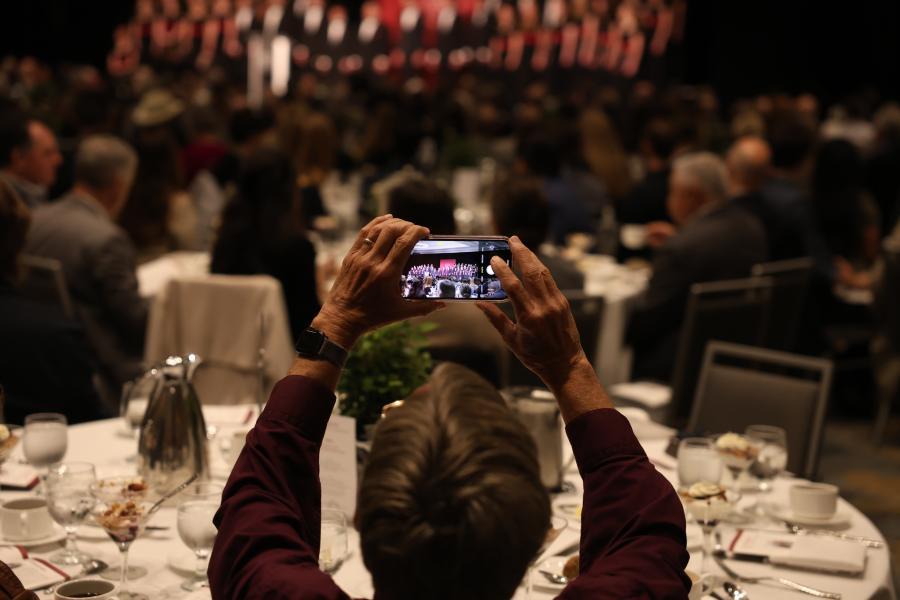Westmont News
Haass Promotes Civic Duties, Global Diplomacy

By
Scott Craig
Richard Haass, who worked at the White House, State Department and Pentagon under four different presidents, offered a civics lesson on global diplomacy while bringing clarity to international conflicts at the sold-out 19th annual Westmont President’s Breakfast March 1 at the Hilton Santa Barbara Beachfront Resort. Despite the Israel-Hamas war, the Russia-Ukraine war, contentious China-U.S. relations and the climate crisis, the veteran diplomat admitted that what keeps him up at night is domestic politics.

Drawing from his latest book, “The Bill of Obligations: The Ten Habits of Good Citizens,” Haass stressed the importance of all Americans, including politicians, to put country before party or person.
“And what we're seeing all too often is when left with their own devices, they won't,” he said. “This (Westmont) is an institution built in so many ways on integrity. You're inculcating your students with these values. While I look at places like Washington, such values are often in short supply.”
He urged the more than 600 attendees to not rely on a miracle to change the state of politics in our country. “If we're going to be delivered from this, it's going to come from people like you all in this room insisting that those with special power in the political world to put country before party or person,” he said. “Our ability to make those connections will depend on ourselves first becoming informed on the principal issues of the day and then getting involved. And this is the year to do it.”
He deftly expounded on global conflicts without mention names or raising political ire.

On the Israel-Hamas war: What seems to me to be missing from the Israeli response is a political dimension that gives people the view that there is an alternative use of force to realize their legitimate political ambitions. We need to satisfy what we see as the legitimate political ambitions for Palestinians, but also making sure that Israel is a two-tiered state accepted in the region.
On the Russia-Ukraine war: For the last two years, Europe and the United States have done a good job with Ukraine doing the bulk of the work itself. The question now is whether we're going to continue to do that. Whether we're going to continue to stand by the victim of aggression. And the fact that I have to even raise the question, I find somewhere in between shocking and disheartening.

On China-U.S. relations: Can the United States and China come up with a formula where we limit our competition? Where our differences, particularly over Taiwan, will not spill over into conflict? And can we find limited areas of cooperation whether it comes to climate, or challenges in the Middle East or North Korea? I think it will be the ultimate test of diplomacy.
On climate change: It's not going to be (solved) through what the world agrees to do, or the sum total of what nation states do because 2023 was the hottest year on record and we're on track for 2024 to be the hottest on record. The real question will be whether technologies get invented and then scaled up and made available soon enough to deal with this. I'm actually pretty optimistic on this. It will take public private partnerships to make that happen and some very creative foreign policies.